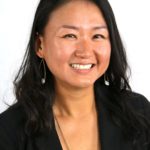By Kevin Simpson, Nayoung Weaver and Rama Ndiaye
In order to gauge how DEIJ initiatives are meaningfully impacting your school, think about the following three questions:
1. What differences are we seeing in student learning and action?
Often, an environment that implements authentic DEIJ work should see a difference in the way students advocate for their existence, for the existence of others, and for their learning. The curricula in both the elementary and the secondary school should prioritise identity (the ability to understand who we truly are at the core) and criticality (the desire to transform our societal condition for liberation for all).
As Gholdy Muhammad argues in her ground-breaking book Cultivating Genius: “When we further consider these four pursuits [skills, knowledge, identity and criticality] we know that we are cultivating children’s quality of life in their post K-12 experiences. When I think of the greatest leaders of our time, they hold identity (or a strong sense of self and others), plus skills, intellect, and criticality. On the other hand, the greatest oppressors of the world lack criticality and knowledge of self and others.”
2. How valued and connected is the local community?
In many international schools, most local staff do not feel as valued as their expat counterparts, nor do they feel connected to the community. This circumstance engenders a hierarchy that is perceived and clear to many community members and often internalised by students who in turn emulate the accepted cultural hierarchy.
In his essay, Washing the World of Whiteness: International Schools’ Policy, Gardner-Mctaggart explains: “The distinct and privileged position of whiteness [as a power structure] in the world can easily be viewed as being integral to the domination of a particular group, with ongoing, pervasive and neo-colonial overtones. For the dominated, this is experienced in education as an emotionally draining, never-ending struggle.”
How, for example, are co-teachers or, what many international schools call Teaching Assistants, thriving as educators or being supported? The “cultural power of whiteness” that Gardner-Mctaggart describes resonates even more profoundly in the international schools located in the Global South where, often, the teaching assistants are educators of colour. The hierarchy is even more striking, present, and obvious in elementary schools where teachers spend the majority of the day with students.
Revolutionary educators should be aware of these hierarchies forming within their institutions, and actively denounce and dismantle the tradition because such a practice not only hinders the opportunity for authentic progressive education, but it also perpetuates structural oppression.
Revolutionary educators understand that the local community is integral to the school. Members of that community bring a cultural capital often not understood, and seldom embraced, by foreign hires and is beneficial to students. To effect community-wide change, leaders should evaluate educators based on the educators’ expertise and commitment to education, rather than merely and solely base the teachers’ perceived efficacy on the acquisition of western credential. Leaders should ask, through a humane and critical lens: How is curiosity fostered in this classroom? How are critical thinking and inquiry implemented? How does the commitment to social justice manifest within the curriculum?
Revolutionary educators understand that the local community is essential in providing the other half of a holistically, internationally-minded curriculum. Such a commitment is also an opportunity to educate and to demonstrate to prospective and current families that the school is a justice-oriented organisation where learners are at the centre of the curriculum.
3. Does your school truly understand the meaning of being internationally-minded?
A way to ensure the community’s understanding of a global citizen is for educators to co-construct that understanding with the members who serve different roles in the institutions. International schools place western culture, whiteness, and the English language at the top of the hierarchy. Equating western culture and westerners as internationally-minded merely for teaching in a foreign country is leading schools to conform to the theory of cultural hegemony where the dominant culture maintains power in hierarchical societies.
In his work The concept of cultural hegemony: Problems and possibilities, T.J. Lears states that Antonio Gramsci characterises cultural hegemony as “the spontaneous consent given by the great masses of the population to the general direction imposed on social life by the dominant fundamental group. This consent is historically caused by the prestige (and consequent confidence) which the dominant group enjoys because of its position and function in the world of production. Ruling groups impose a direction on social life; subordinates are manipulatively persuaded to board the dominant fundamental express.”
Revolutionary educators understand that in order for a school to reach the status of an internationally-minded community, this intercultural value must be embedded in the curriculum, and thus explored by students. International-mindedness must also be clearly situated and genuinely felt within the school culture by all stakeholders.
What will you do as a revolutionary educator?
As a future or current revolutionary educator what will you do to ensure that transparency and accountability become an intrinsic part of your values? How will you ensure that all community members feel humanised, seen, and valued? How will you fight for students’ right to discover themselves and be provided the adequate tools to understand their reality so that they do not simply feed into the cycle of oppression?
The interest convergence of DEIJ and future generations of identity-centred awareness is impossible to stop. Becoming a revolutionary educator who holds a humanistic understanding of education is one of the many ways to begin creating a more just world. Join us in the struggle for social justice, join an antiracist organisation, but most importantly be active and be reflective. Meaningful change can happen. We simply must have the courage to work as a collective and in solidarity in order to transform the world into a more justice-oriented place.
 Kevin Simpson is the founder of AIELOC and KDSL Global, a leading learning organisation focused on empowering educators and education businesses globally. Connect with Kevin on LinkedIn
Kevin Simpson is the founder of AIELOC and KDSL Global, a leading learning organisation focused on empowering educators and education businesses globally. Connect with Kevin on LinkedIn
 Nayoung Weaver is an AIELOC Fellow. She has worked as a College Counsellor and Secondary School Math teacher in international schools in Asia.
Nayoung Weaver is an AIELOC Fellow. She has worked as a College Counsellor and Secondary School Math teacher in international schools in Asia.
 Rama Ndiaye is an AIELOC Fellow and an international elementary teacher.
Rama Ndiaye is an AIELOC Fellow and an international elementary teacher.
Subscribe to International School Leader Magazine for more!

